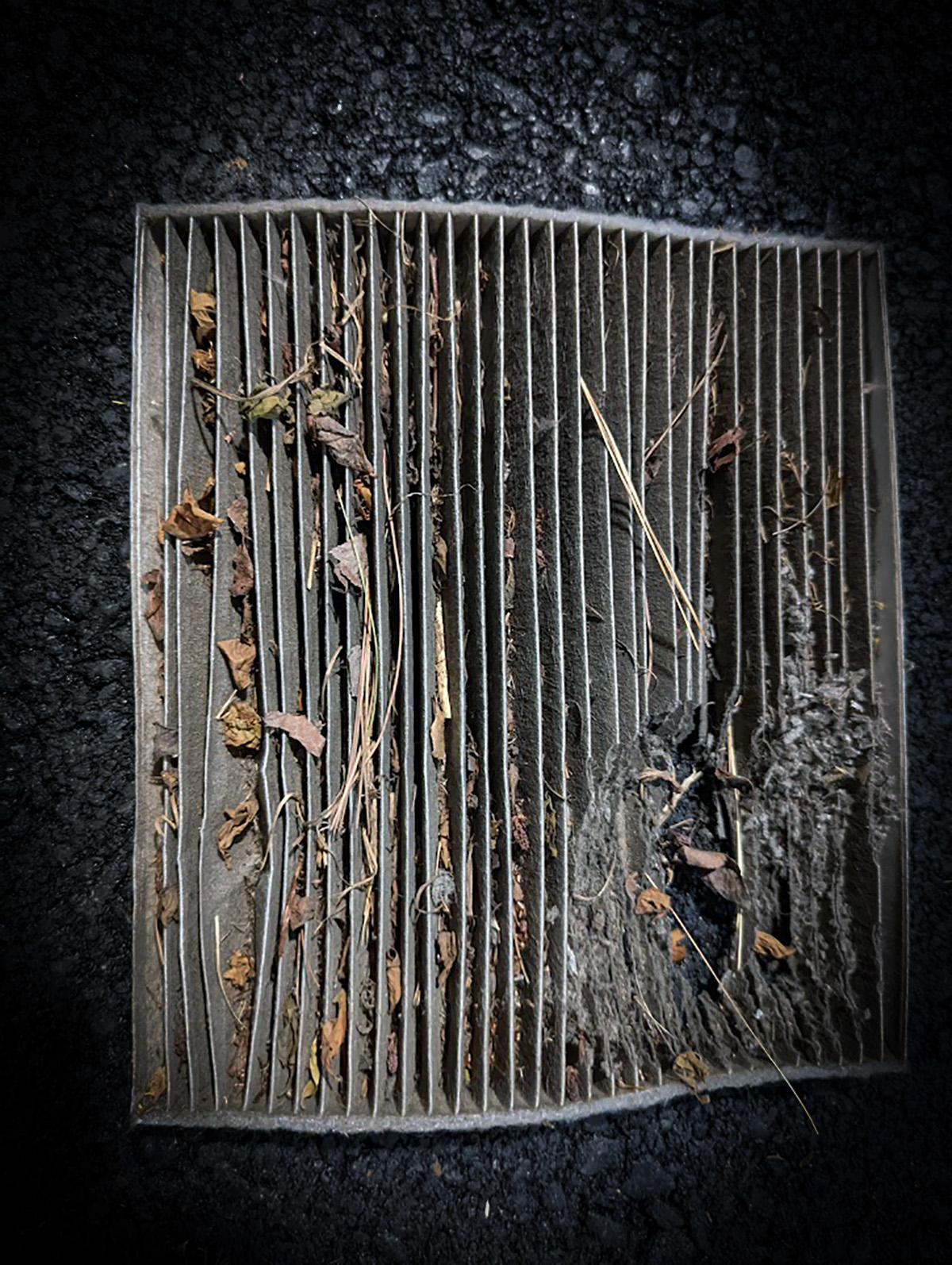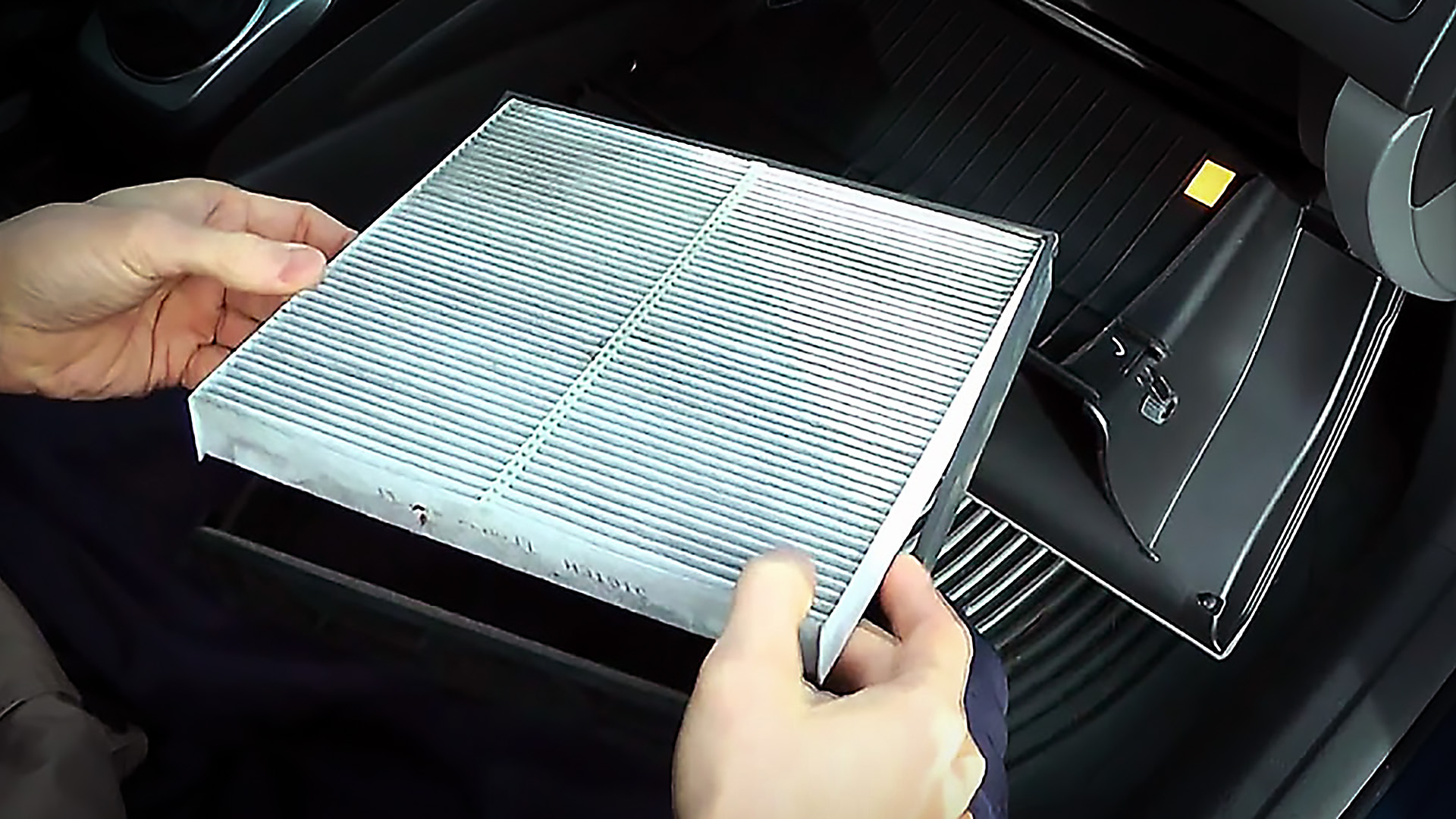“Drive it ‘til the wheels fall off” isn’t the safest decision. So when does it end?

Most of us know that we should change the filter in our home heating and air conditioning system monthly, but why? What does it do?
The role of the filter is twofold. First, it traps dirt, dust, pet dander, pollen and other allergens and helps keep the air you’re breathing inside your home cleaner.
It also protects the heat exchangers, like the evaporator, from becoming blocked with debris which reduces its efficiency. The mixture of condensate and debris at the evaporator can result in mold growth —that musty odor you may have experienced at one time or another—that could pose health risks to those exposed to it.
Yeah, this filter has a big job to do-protecting a houseful of air. But what about the air in the cabin of your customer’s car? Doesn’t that need to offer the same kind of protection?
You bet it does. Maybe even more.
In addition to all the pollutants already mentioned, consider a car stuck in traffic. Vehicle emissions like carbon monoxide, diesel particulates, bits of tire rubber, and brake friction material are all trying to find their way inside. Keeping them out is the job of the cabin air filter. And just like the filter in your customer’s home, the cabin filter is there to protect the heat exchangers (primarily the evaporator core) from becoming restricted and growing strange fuzzy stuff.

This filter is way past needing replacement! Photo: Lemmy.
Symptoms of a restricted cabin air filter include customer complaints of a musty or dirty odor in the car, or complaints that the A/C isn’t keeping them as comfortable as it should. You may even notice a lower flow of air coming from the HVAC registers, even with the blower on high speed.
But it should never get that far. You inspect the engine air filter during routine servicing of your customer’s car, don’t you? Cabin filters are arguably even more important, protecting your customer’s health just as the engine filter does the engine’s health—and should be checked just as often.
Most filters are easily accessible with the typical access located behind the vehicle’s glove compartment. And there’s only a few that take more than 15-20 minutes to service. If you’re not sure about a particular vehicle, many parts suppliers offer guides that provide all the info you need to know to service this vital filter. And while they don’t require monthly replacement like your home HVAC filter, most OEMs do recommend changing the filter annually or every 15,000 miles, whichever occurs first.
Of course, your customer’s driving habits and conditions may require replacement more often. Are pets a driving companion? Is she driving on paved or dirt roads? Does he spend a lot of time in city traffic? All are conditions that may require more frequent replacement of the filter.
That’s why we inspect.

Most cabin air filters are easy to access, taking very little time to inspect or replace. Photo: Peter F Meier.
If the filter does require replacement, you may find that there are multiple options for that replacement. In many cases, a charcoal or carbon-activated filter may be available. These filters offer the additional benefit of removing odors as well as contaminants. If your customer is stuck in traffic a lot, this solution to breathing in exhaust fumes may be a welcome one! Be sure to offer the choice and explain the benefits to your customer.
One last note on installation of the new filter: Most will have a flow arrow, just like that home HVAC filter does, indicating how it should be installed. Be sure to have the arrow facing the right way!
You know how important it is to for the engine to breathe clean air. How much more so is it when it comes to your customer’s health and comfort? Check that cabin air filter at every routine service, and don’t let profitable work with a very real benefit pass your shop by!
The articles and other content contained on this site may contain links to third party websites. By clicking them, you consent to Dorman’s Website Use Agreement.
Participation in this forum is subject to Dorman’s Website Terms & Conditions. Please read our Comment Policy before commenting.